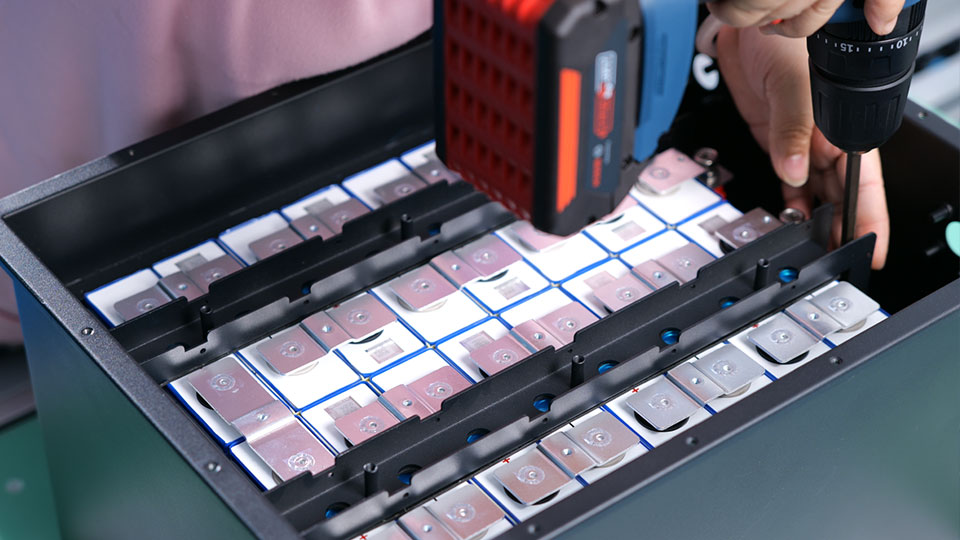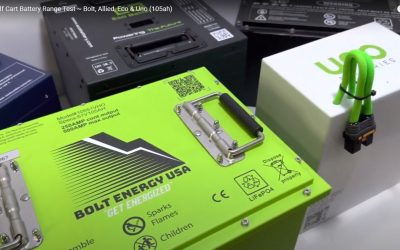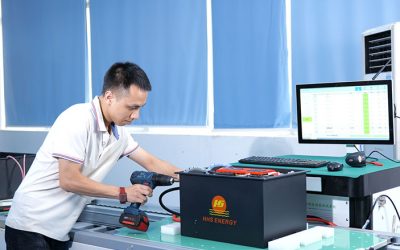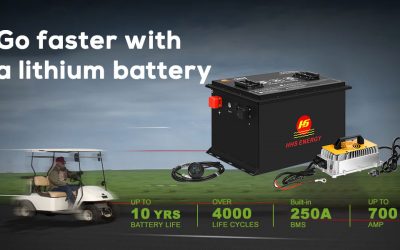Lithium Golf Cart Battery Manufacturer, Suppliers, Factory > News > Golf cart battery > What’s the difference between 48v and 51.2v lithium golf cart batteries?
What’s the difference between 48v and 51.2v lithium golf cart batteries?

The difference between 48V and 51.2V golf cart batteries primarily comes down to the voltage rating, performance, and efficiency. Here’s a breakdown of the key distinctions:
1. Voltage
- 48V Battery: Standard voltage for many golf carts, typically provided by either lead-acid or lithium batteries.
- 51.2V Battery: A higher voltage option often used in Lithium Iron Phosphate (LiFePO4) battery configurations. This is technically still considered a 48V system but provides a more accurate rating for the actual operating voltage of lithium cells.
2. Battery Chemistry
- 48V (Lead-Acid): Traditional 48V systems are usually based on lead-acid batteries, where the voltage tends to drop more significantly as the battery discharges.
- 51.2V (Lithium-Ion): Lithium batteries, specifically LiFePO4, are designed for stable voltage output throughout the discharge cycle. The 51.2V designation is simply a more accurate nominal voltage for lithium batteries (which are typically composed of 16 cells at 3.2V each).
3. Performance and Efficiency
- 48V (Lead-Acid): Lead-acid batteries suffer from voltage sag during use, meaning the voltage drops significantly under load and as they discharge, affecting performance and range. They also tend to be heavier and have less usable capacity.
- 51.2V (Lithium): Lithium batteries offer more stable voltage and higher efficiency. Even under heavy loads or at lower states of charge, lithium batteries provide consistent performance. They are lighter, offer higher energy density, and allow for more power delivery over time.
4. Range and Power
- 48V (Lead-Acid): May need more frequent charging and may not provide the same range or power under heavy loads compared to lithium.
- 51.2V (Lithium): Offers a longer range and better performance under load, especially useful in hilly terrains or for long-distance drives. Lithium batteries are also more energy efficient, meaning less power is lost during use and charging.
5. Lifespan
- 48V (Lead-Acid): Typically lasts between 2-5 years depending on use, with around 500-1,000 charge cycles.
- 51.2V (Lithium): Can last up to 10+ years with around 2,000-5,000 charge cycles. Lithium batteries also maintain a higher percentage of their original capacity over time compared to lead-acid.
6. Maintenance
- 48V (Lead-Acid): Requires regular maintenance such as checking water levels and cleaning terminals. Lead-acid batteries can also suffer from sulfation if left uncharged for long periods.
- 51.2V (Lithium): Virtually maintenance-free. Lithium batteries are sealed units that do not require watering or maintenance and are less prone to issues like sulfation.
7. Cost
- 48V (Lead-Acid): More affordable upfront but has a shorter lifespan and requires more maintenance, leading to higher long-term costs.
- 51.2V (Lithium): Higher initial cost but longer-lasting and more efficient, leading to lower overall costs over the battery’s life.
Conclusion:
- 51.2V Lithium batteries offer superior performance, efficiency, and longevity compared to 48V lead-acid batteries. They are ideal for users looking for consistent power, lower maintenance, and longer range. If your golf cart already operates on a 48V system, upgrading to a 51.2V lithium setup can improve performance while maintaining compatibility with your existing motor and controller.






